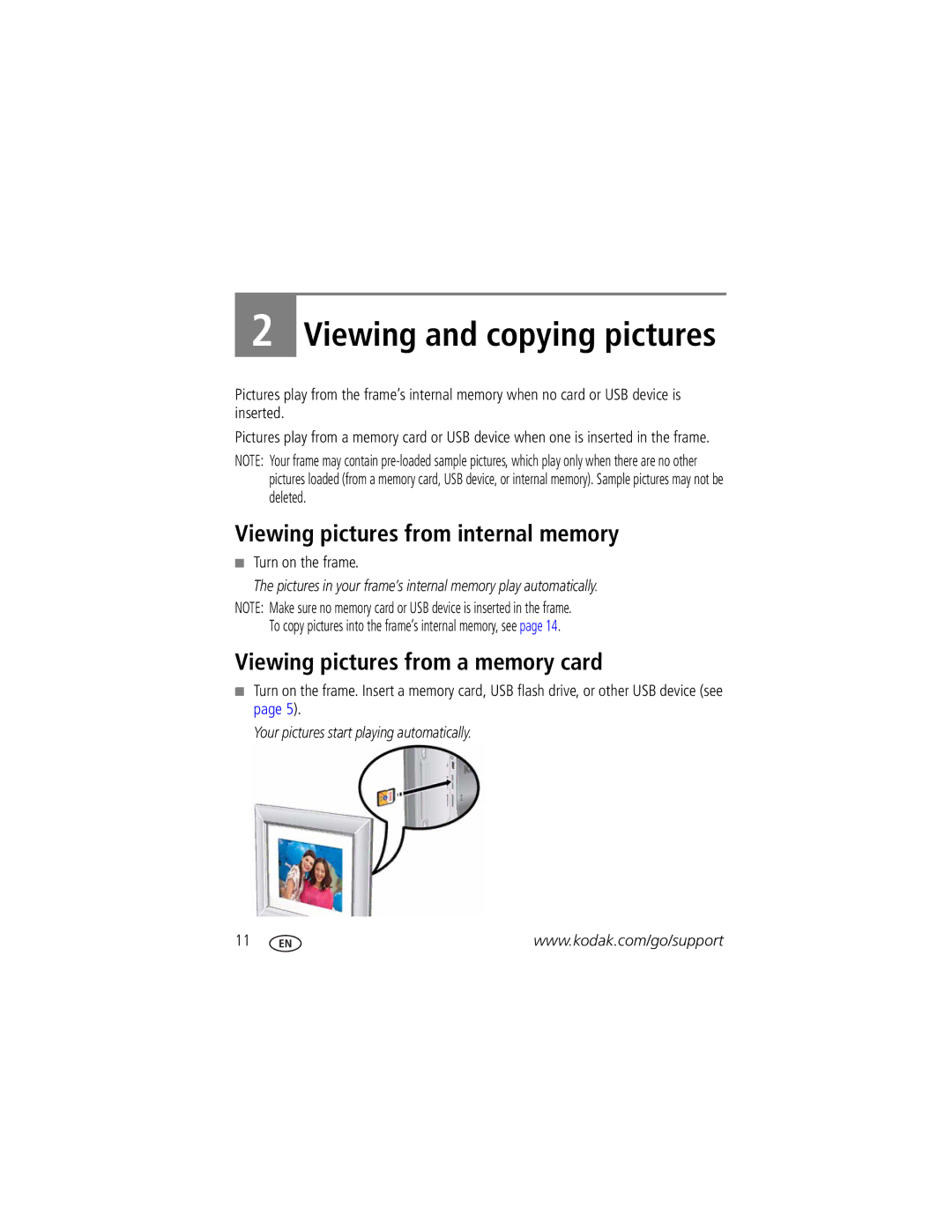D1025, D825 specifications
Kodak has long been a name synonymous with photography, and the Kodak D825 and D1025 stand out as notable contributions in the realm of digital photo frames. These models marry functionality with aesthetic appeal, making them popular choices for displaying cherished memories.The Kodak D825 features an 8-inch display while the D1025 steps up to a 10-inch screen. Both frames utilize advanced LCD technology, ensuring vibrant colors and sharp details that enhance the viewing experience. The screens are designed to support a wide range of photo formats, allowing users to showcase their images in the best light.
One of the standout characteristics of both models is their user-friendly interface. Navigating through photos is straightforward, thanks to a well-designed menu system. Users can easily browse through their collections, select favorite images, and even adjust settings with minimal effort. This ease of use is particularly appealing to those who may not be tech-savvy.
In terms of storage, the D825 and D1025 support various memory card formats including SD and SDHC. This ensures that users can easily transfer photos from their cameras or smartphones to the frame without needing complex setups. Additionally, both frames come with built-in memory, providing extra storage for users who may not have immediate access to memory cards.
Another key feature of the Kodak D825 and D1025 is the slideshow functionality. Users can choose from multiple transition effects and durations, allowing them to personalize how their images are displayed. Both frames also feature adjustable brightness settings, which can be tailored to the ambient lighting of the room, ensuring optimal viewing no matter the time of day.
In terms of design, the Kodak D825 and D1025 boast sleek, modern aesthetics that fit well in any home or office setting. Their elegant frames can blend seamlessly with various types of decor, making them not just functional devices but also stylish accents.
Both models also offer the option to display photos along with customizable captions, adding a personal touch to the viewing experience. This feature allows users to share memories more meaningfully, providing context to the images being displayed.
In summary, the Kodak D825 and D1025 digital photo frames are distinguished by their impressive display quality, user-friendly design, and customizable features. They represent an ideal blend of technology and artistry, making it easy for users to preserve and share their most treasured moments. Whether for personal use or as thoughtful gifts, these frames truly capture the essence of fond memories.

